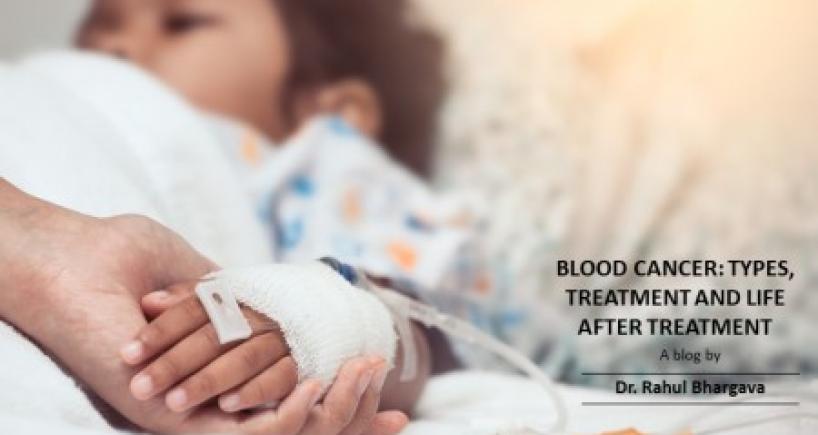
Oncology
Blood Cancer: Types, Treatment And Life After Treatment
Dr. Rahul Bhargava Aug 27, 2019
The moment blood cancer comes to your mind, you think of 2 things: One, it’s like a death sentence and second, it is non-curable and involves very expensive cancer treatment.
As human beings, we are all different. All males and females are different. Similarly, blood cancer as a disease, is a conglomeration of 100-150 cancers. This in turn implies that treating all these variants of blood cancers with the same stick is not right.
In past 17 years, in diseases like CML (Chronic Myeloid Leukemia) marked by high WBC count and splenomegaly, survival for as high as close to around 15 to 20 years, has been observed, by just taking one oral pill, imatinib. Isn't that strange? We always thought, with the blood cancers, our hair will fall and we will die eventually. A single drug has led to the survival of 80 percent people for close to 15 years.
In CLL, also known as chronic lymphocytes leukemia, wherein people usually have high TLC count in the elderly age group, 80 percent of people do not require the treatment and the rest 20 percent people can easily survive for close to five to 10 years. Similar success stories exist in multiple myeloma, wherein patients are given chemotherapy, which is devoid of hair loss, nausea and vomiting, contrary to the popular belief of fear of chemotherapy. The most common thing, which comes to mind while thinking about chemotherapy, is hair fall, nausea, vomiting and enhanced sickness. But, let me tell you, all these have been replaced by newer therapeutic agents, which are faster, more target oriented and can enable the patient go home early.
For diseases like AML and ALL, there is a better risk stratification. We know that the diseases like AML and ALL, could be good, bad or ugly, depending on case to case. Good AML/ALL only requires chemotherapy, bad and ugly requires early bone marrow transplant for cure. In aplastic anemia and lymphomas, there are multiple success stories. In case of lymphomas, for a particular type of lymphoma, called diffuse large B cell lymphoma, 80 percent people are surviving now by virtue of a single drug called Rituximab.
If you are constantly fatigued, visit a doctor; if you have a lump in the cervical region, in the armpits, in the abdomen, or anywhere in the body, go to a doctor and ask for a biopsy.
We have a paradox! We take examples from the US, where 80 percent of cancers are being diagnosed as stage 1, however, in India, 80 percent cancers are still diagnosed as stage three and stage four. Blood cancer was a death sentence, only in the era, when all the cancers were diagnosed at stage three or stage four.
There have been many success stories for CML, CLL, Multiple myeloma, ALL, Myelodysplastic syndrome, Lymphomas and we know if we can diagnose these disorders early, we can beat blood cancers. There are number of patients who have undergone early transplants for AML and ALL, and are surviving now. So, let's put in our efforts together to pledge that we will beat blood cancers by diagnosing them early and getting the state-of-the-art treatment which is more affordable and less expensive and much targeted to the disease itself.
Categories
Clear allMeet the doctor

Dr. Rahul Bhargava
PRINCIPAL DIRECTOR & CHIEF - HEMATOLOGY, HEMATO ONCOLOGY & BONE MARROW TRANSPLANT | Fortis Noida
- Haematology | Haematology
- Organ Transplant | Hemato-Oncology | Haematology and BMT
- Oncology | Hemato-Oncology
-
15 Years
-
1000
 Available at 1 different locations
Available at 1 different locations

Fortis Gurgaon




















